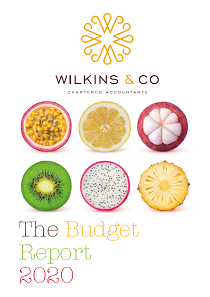Here is our summary of all the information currently available about this scheme to help the self-employed.
Who qualifies:
You can apply if you are self-employed or in a partnership.
Directors of limited companies, even if you are the only person in the company, are not self-employed, and you do not qualify for this support.
To qualify, you must meet ALL the following criteria:
- Have traded in the 2019-20 tax year
- Still be trading when you apply (or would be, if it were not for CV-19) and intending to continue to trade in 2020-21
- Have suffered a reduction in profit due to CV-19
- Have submitted your 2018-19 tax return. This was due to be filed by 31 January 2020. If for some reason, you have not yet done so, you have 4 weeks now to get it in – before 23 April 2020.
What income do I need to have had to qualify?
Your self-employed trading profit must be less that £50,000 and more than HALF of your total income must come from your self-employment.
This is worked out by at least one of the following 2 conditions being true:
- Your trading profit in 2018-19 was less than £50,000, and these profits were more than half your total taxable income in 2018-19
- Your AVERAGE trading profits in 2016-17, 2017-18 and 2018-19 were less than £50,000, and these profit were more than half your average total income in the same period. (If you have been trading for less than 3 years, you use the length of time you have been trading instead)
It is presumed that HMRC will take the figures from your previously submitted tax returns to work our your eligibility, so you can check your SA302’s if you need to check your eligibility.
(SA302 is the tax calculation sent to you with your tax return)
How much will I get?
You will get a taxable grant which will be 80% of the average profit for the tax years:
- 2016-17
- 2017-18
- 2018-19
HMRC will add up the trading profit for 3 years, divide by 3 and use this to calculate a monthly amount. The maximum will be £2,500 for 3 months.
It will be paid into your bank account in one instalment.
It is important to note that this is a taxable grant, so although it does not need to repaid, it will go as income on your 2020-21 tax return. If you claim tax credits, you’ll need to include the grant in your claim as income.
When Will I Get It?
This is the contentious issue at the moment. HMRC have said the money should be available in early June.
This is not HMRC being difficult or delaying on purpose. It would normally take months of planning, if not years, to set up this system, and HMRC are trying to do it a few weeks.
How do I Apply?
YOU DON’T.
HMRC already have your tax returns and they will contact you if you are eligible for the scheme. You will then complete some details online and subject to final checks, the money will be paid into your bank account.
Summary
This is a massive help for 95% of the self-employed. As with all schemes, it doesn’t work for everyone. Anyone starting self-employment since 6 April 2019 is not covered, nor is anyone who has been self-employed, but now made the transition to a limited company.
Businesses that have grown in 2019-20 will not have these increased profits taken into account when calculating the payments due. But for many, it is the help that was being requested.
If you require any more information about the scheme, or other help that may be available to you in these difficult times, then please get in touch with Rosie Forsyth at Wilkins & Co.





